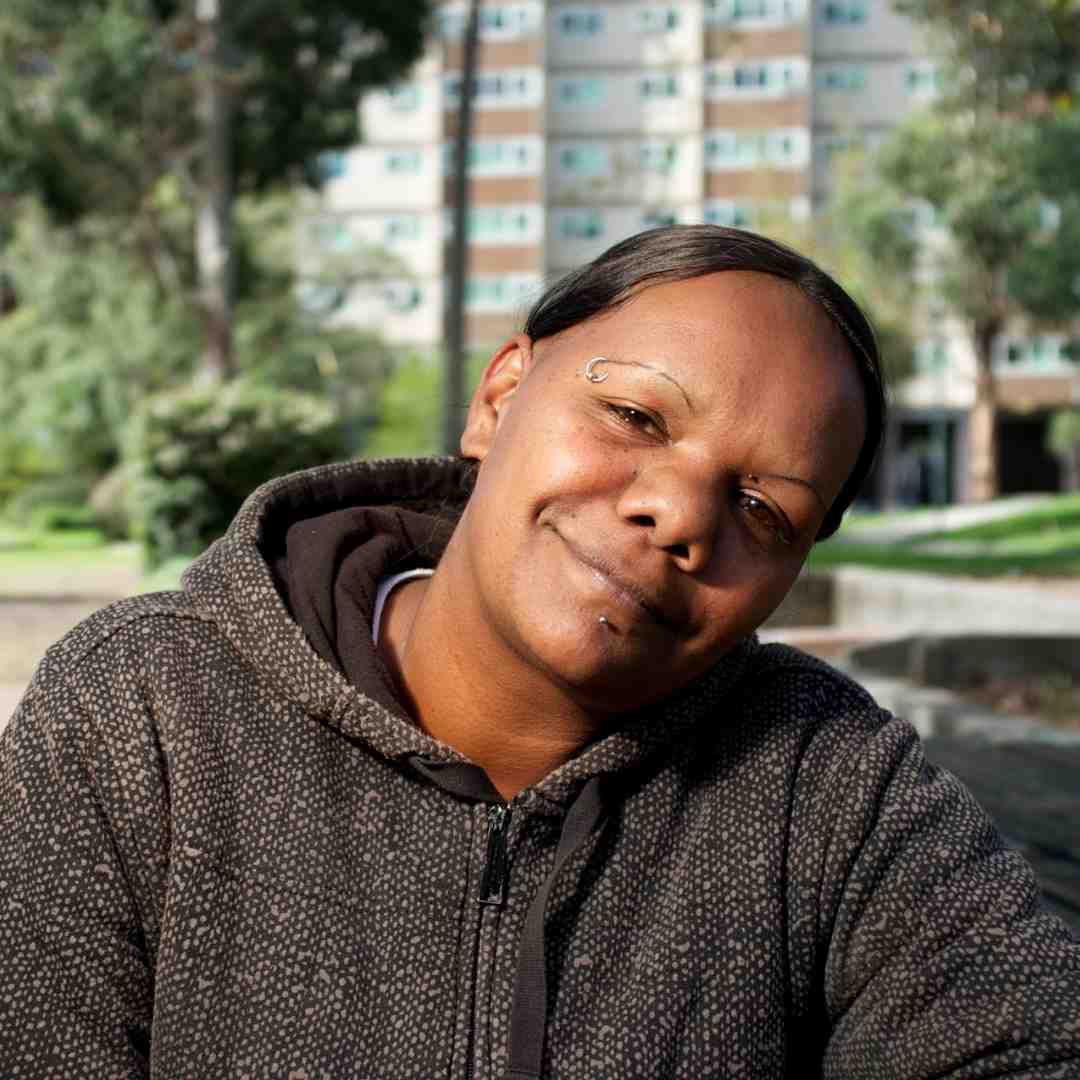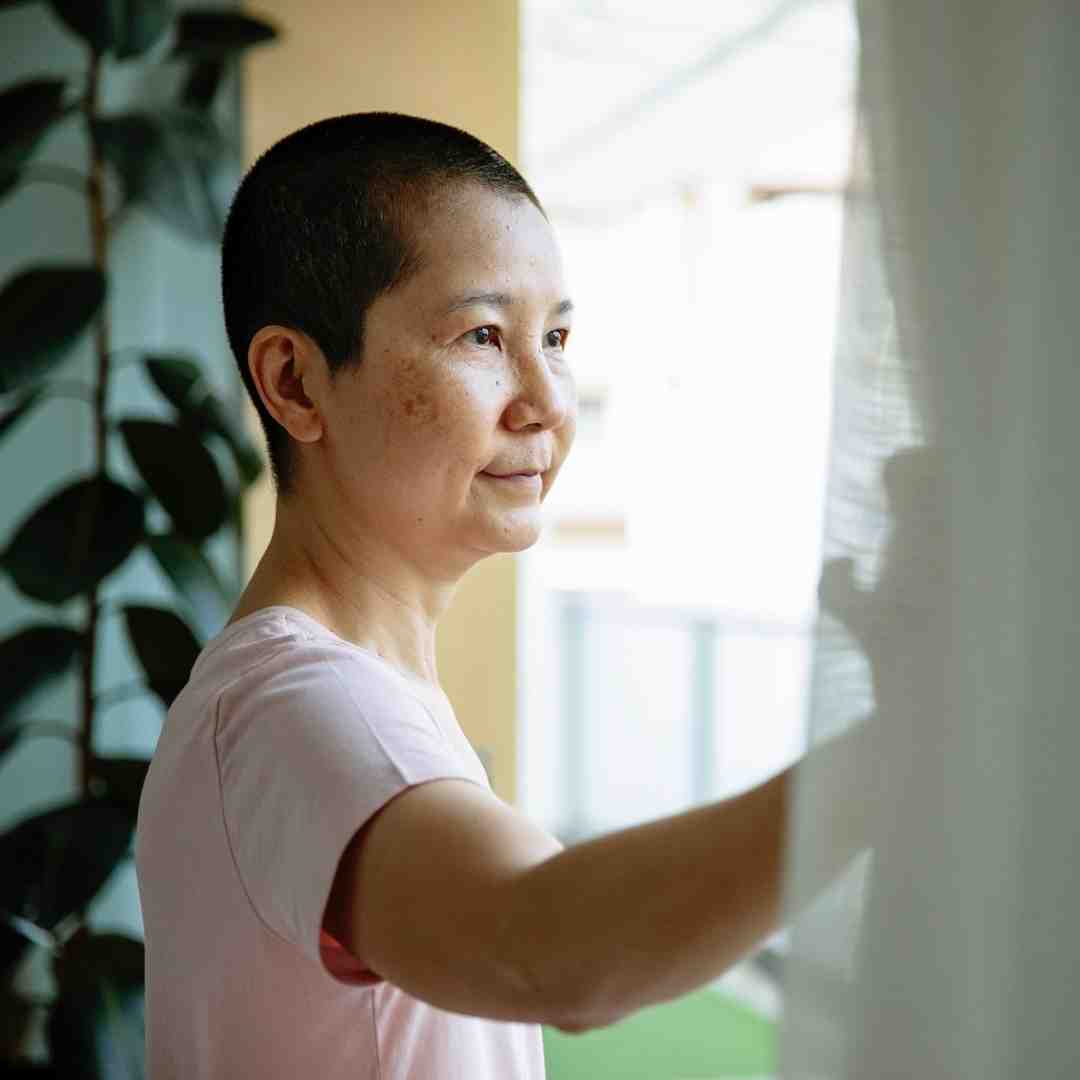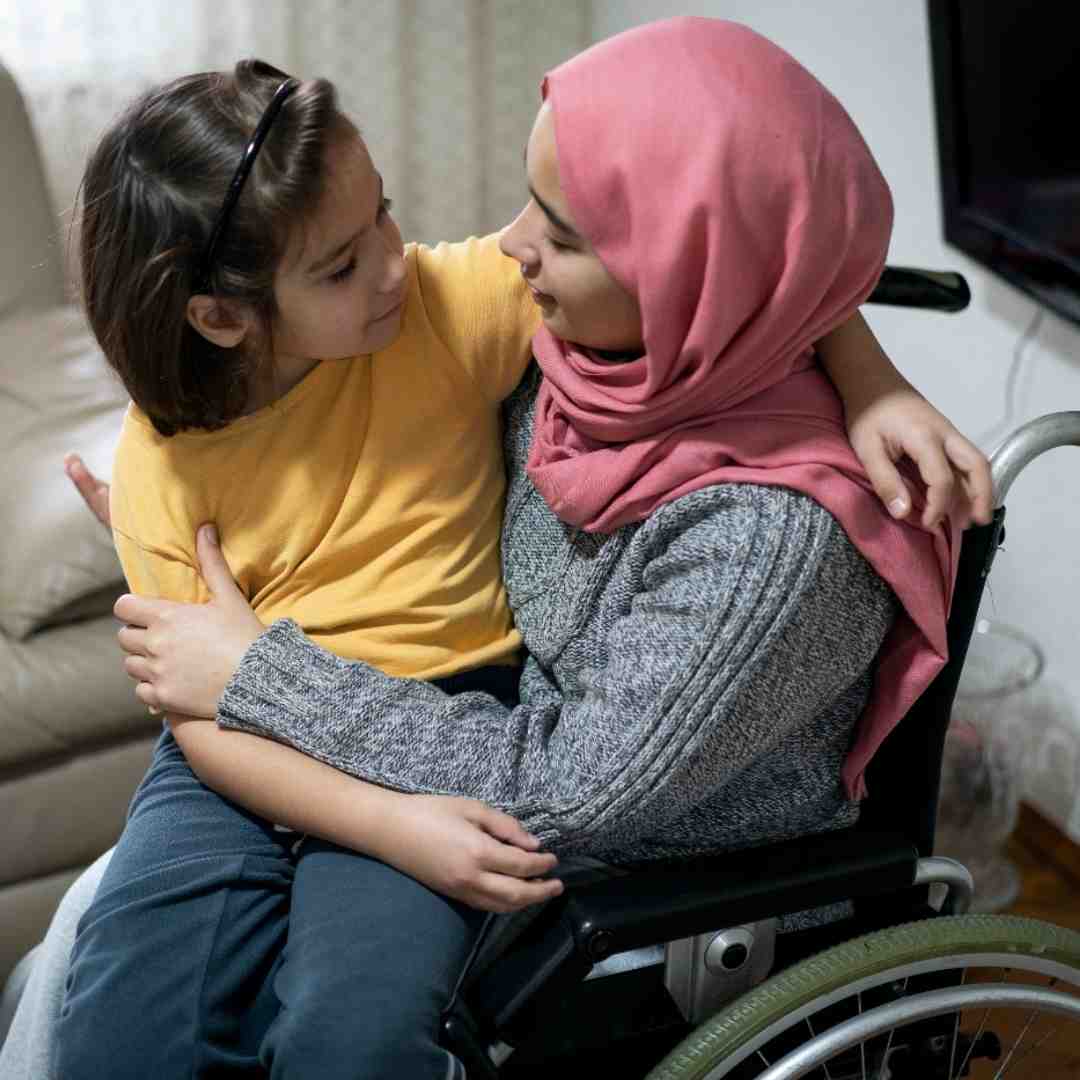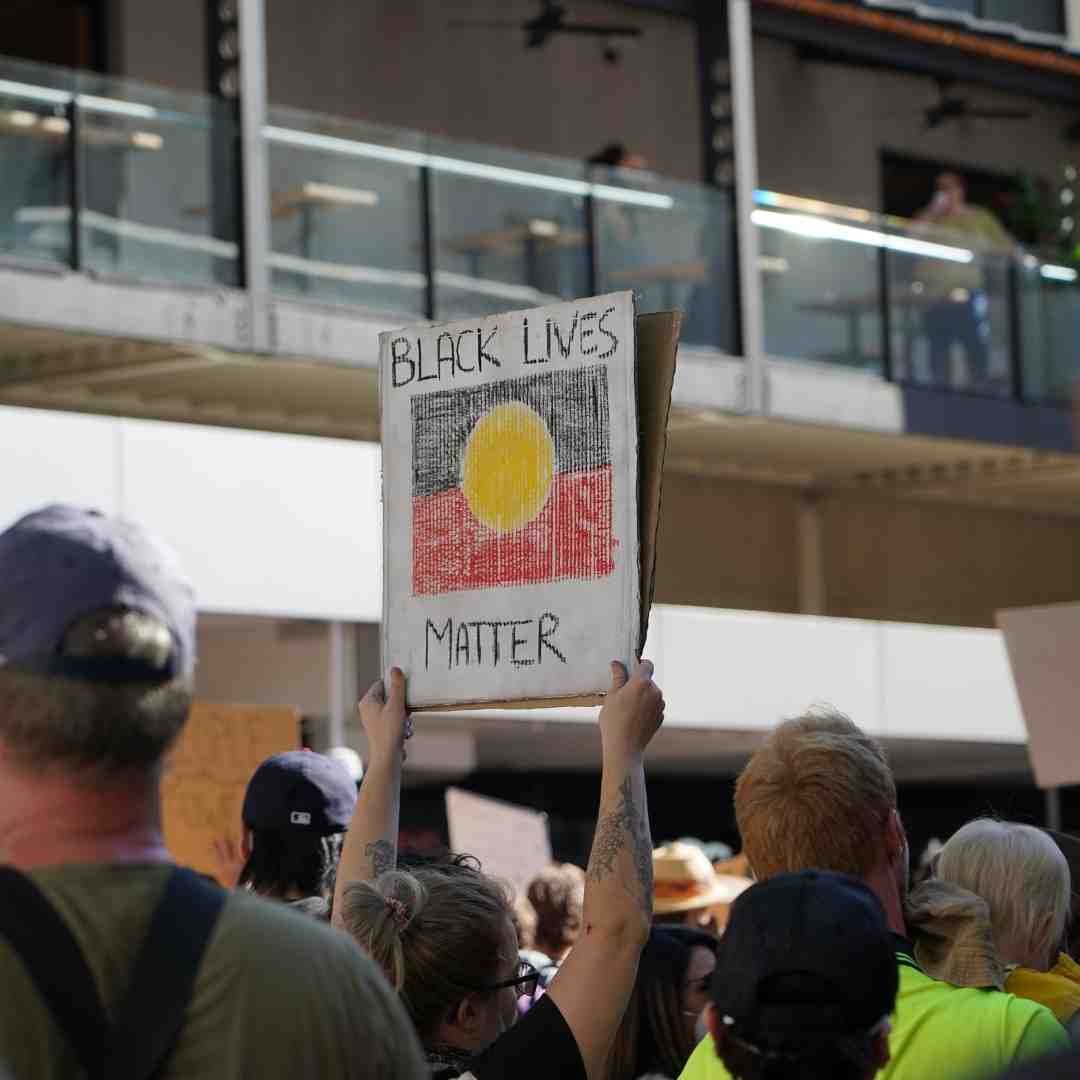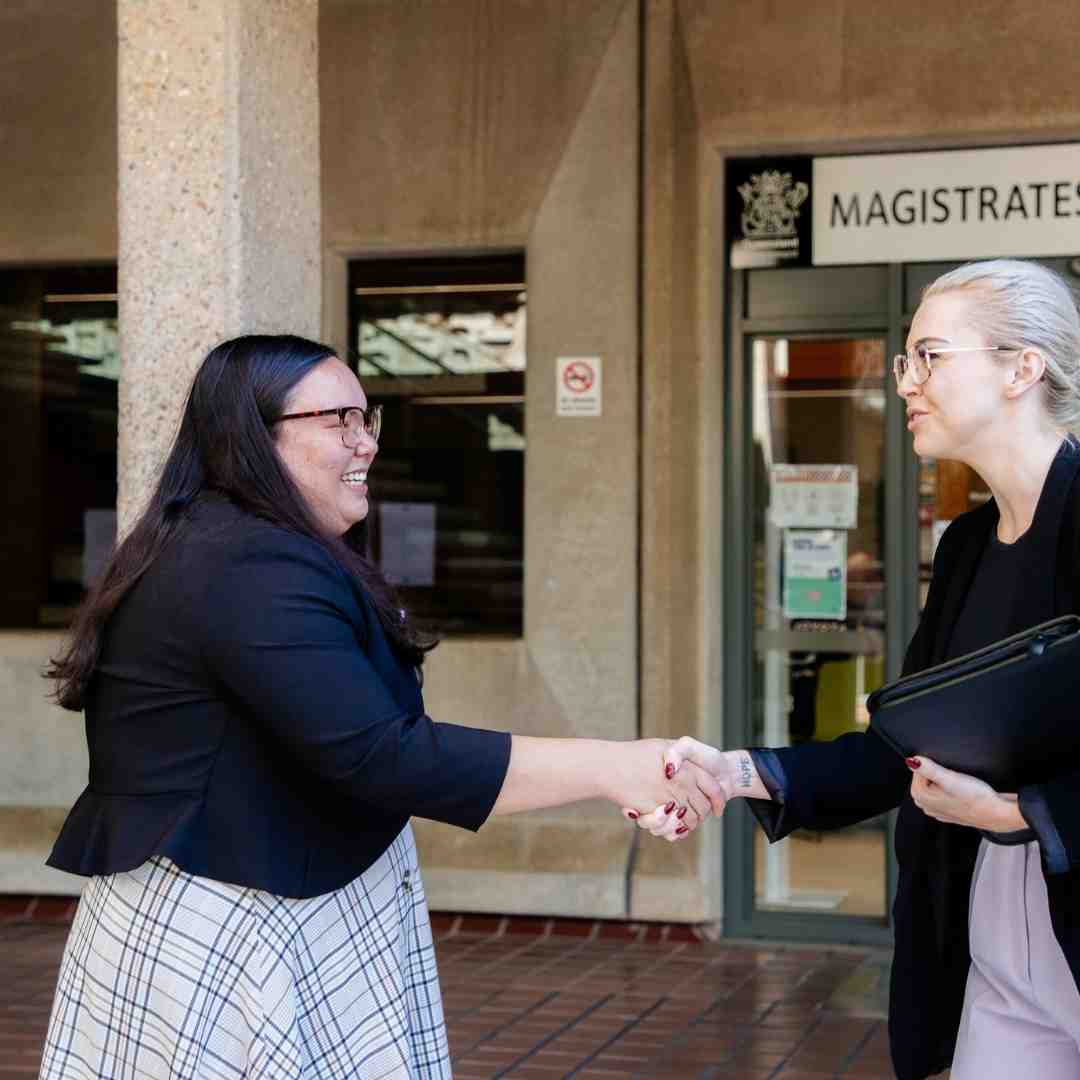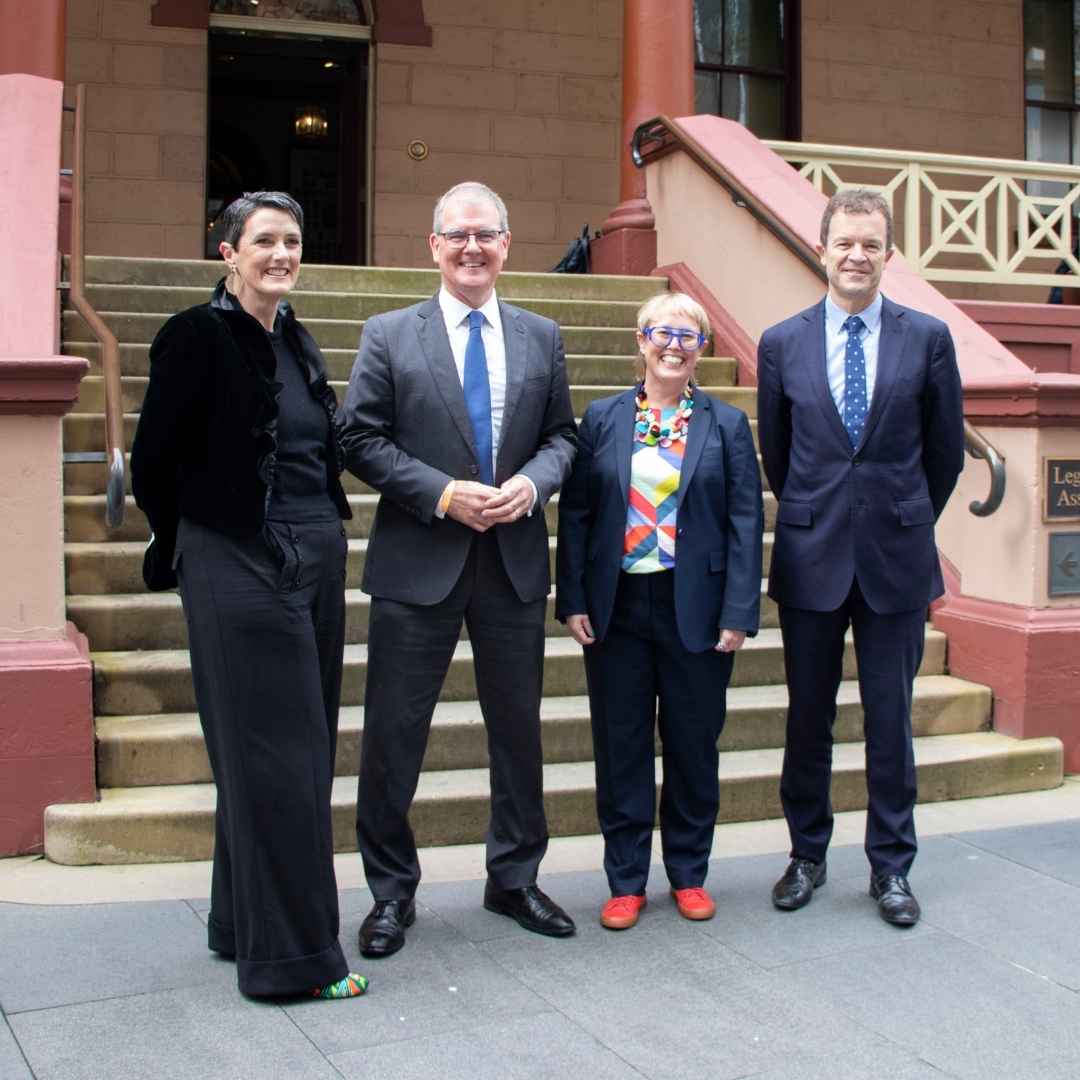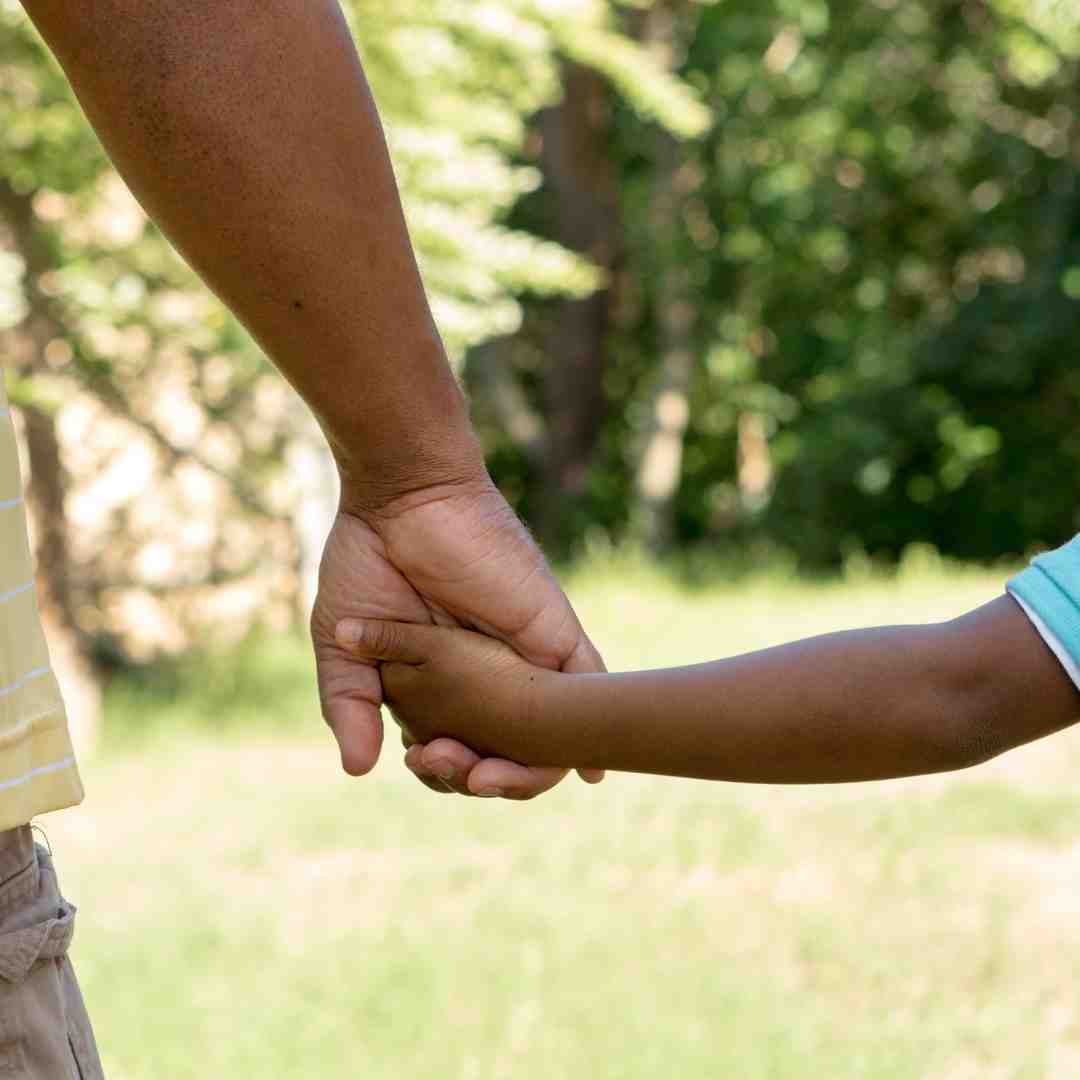
We all flourish when communities are empowered to build justice, safety and equity.
Community legal centres’ model of early and holistic support addresses people’s legal issues before their problems can spiral out of control. Our tailored, early and independent legal assistance breaks pathways into prison, keeps families together, and supports people to find the support they need at a community-level.
In contrast, prisons isolate and disconnect people, tear families apart, and pose a serious threat to the lives of Aboriginal and Torres Strait Islander people.
In NSW, discriminatory and targeted policing pushes many people into needless and harmful contact with the prison system. Police disproportionately target Aboriginal people, people with disability and migrant communities with over-surveillance, contributing to over-imprisonment. Aboriginal people have been, and continue to be, subjected to discriminatory and violent treatment.
Many people in NSW are sentenced to imprisonment for offences like traffic violations or drug offences, which are often linked to economic inequality and systemic discrimination. Prisons fail to address the root causes of social and economic problems. For example, drug dependence is a health issue, and requires compassionate and humane policies that encourage people to seek meaningful social connection and specialist health support services.
Police and the courts imprison women, and particularly First Nations women, at alarmingly high rates. There needs to be a better understanding of the pathways of women to prison. The majority of women in custody have complex histories of sexual and domestic violence and abuse, including child sexual abuse. The rates of previous victimisation are highest for First Nations women, with some studies suggesting that up to 90% of First Nations women in custody are survivors of family violence and other violence.
It is the experience of community legal centres in New South Wales that much offending by women, including drug, property and fraud offences needs to be understood in the framework of trauma. It is a means of dulling pain through alcohol and other drugs or gambling. Fraud offences may provide a way for victim-survivors of complex trauma to access alcohol and other drugs, or to fund gambling activities.
We are also concerned by the criminalisation of many women often arising from misidentification of the person most in need of protection. There is also a failure of police and the legal system to recognise coercive and controlling violence perpetrated against women, many of whom are coerced into committing criminal offences. Incarceration of people, particularly pregnant people and people with caring responsibilities for children, must be a last resort.
By investing in community-led supports and services, including specialist gendered and culturally safe legal services, we can promote community safety, prevent harm, and nurture all people to participate, be active decision-makers, and lead fulfilling lives. Fairer laws and policies will reduce the need for – and frequency of – police intervention, prevent violence, reduce the number of people in prisons, and improve the quality of life of all people in our community.
A world where justice, safety and equity are delivered through compassionate, and evidence- based approaches is within reach. Communities – particularly Aboriginal and Torres Strait Islander people – have the solutions. We just need governments to fund them.
Empower communities to tackle the root cause of problems
- Fund and support place-based, community-led initiatives to build empowered communities and reduce harmful interactions with the criminal legal system in partnership with Aboriginal and Torres Strait Islander people and communities.
- Provide long-term, sustainable funding to community legal centres, Aboriginal Legal Service NSW/ACT, and Family Violence Prevention Legal Services.
- Fund the establishment of a specialised criminal legal service for women, including First Nations women, which is sexual, domestic and family violence informed, trauma informed and culturally safe
- Implement ‘an expansion of the criminal defences for victims of family violence who commit offences other than homicide (for example, benefit fraud and other property offences, drug and driving offences) in order to recognise the role that intimate partner violence plays in their “decision” to offend’.
Adopt a harm minimisation approach to drugs
- Decriminalise the use and possession of drugs for personal consumption.
- Implement the recommendations made by the Special Commission of Inquiry into the Drug Ice.
- Develop and implement a whole-of government Alcohol and Drugs policy that prioritises health and social responses to drug use and recognises the harms associated with punitive responses.
- Increase resourcing for specialist alcohol and drug health services, as well as harm- minimisation programs.
- Establish a state-wide clinically supervised substance testing, education and information service, with branches at appropriate fixed- site locations.
- Remove the prohibition in the Drug Misuse and Trafficking Act 1985 (NSW) on possession of ice pipes.
- Ensure equal and timely access to drug treatment and rehabilitation services for everyone who wants to access health support, particularly people living in regional, rural, and remote communities.
- Increase the availability of child-inclusive rehabilitation services, including in regional, rural, and remote communities.
- Expand the Drug Court to additional locations across rural, regional, and remote NSW, starting with Lismore, Port Macquarie, Wagga Wagga and Nowra.
Decriminialise homelessness
- Introduce a court-integrated outreach program to support people experiencing homelessness who have contact with the criminal legal system to find housing.
- Repeal the Sydney Public Reserves (Public Safety) Act
2017 (the Martin Place Act), which empowers NSW Police to remove people or goods from Martin Place, and other public reserves in the City of Sydney by proclamation. - Amend section 197 of the Law Enforcement (Powers and Responsibilities) Act 2002 (NSW) to:
- Provide a maximum time limit of 6-hours for move on directions consistent with time limits under s198.
- Insert new subsections that require police to consider people’s need to access an area for lawful purposes including access to essential services when determining whether to make a move-on order and for how long an order should be effective.
Decriminalise HIV transmission
- Abolish penalties for failing to take ‘reasonable precautions’ against transmitting HIV under the Public Health Act 2010. Replace them with a statement of principles recognising people’s mutual responsibility to avoid transmitting or contracting sexually transmitted infections.
Disrupt pathways to prison
- Make a whole-of-government commitment to reduce the number of people in NSW prisons.
- Repeal section 4A of the Summary Offences Act 1988, which criminalises ‘offensive language’.
- Reform the Crimes (Sentencing Procedures) Act 1999
to:- Strengthen provisions that provide for imprisonment as the sentencing option of last resort.
- Amend section 77 of the Bail Act 2013 to make arrest for breach of bail a measure of last resort.
- Invest savings generated from reduced rates of imprisonment into communities following the principles of justice reinvestment, ‘a data-driven approach to improve public safety, reduce corrections and related criminal justice spending, and reinvest savings in place-based, community-led strategies that can reduce crime and strengthen communities’.
- Reverse the increasing expansion of policing and the related use of policing as the default institutional response to social, cultural, and economic forms of disadvantage (to which police are not the appropriate responders).
- The NSW Government not increase the capacity of the prison system by building more prisons or expanding existing ones.
- End the profiting off imprisonment, by closing existing private prisons, or transferring them to government control.
- Amend the Law Enforcement (Powers and Responsibilities) Act 2002 to expressly provide that arrest, detention and imprisonment should be used only as measures of last resort and for the shortest time.
- Implement co-responder models for first response to health and social crises. Ensure health and social workers are first responders to people who need support, including people experiencing mental health crises and homelessness.
- Deliver programs to build knowledge and understanding of the impact of domestic, family, and sexual abuse, trauma, and the legal process itself on victim-survivors, their dependents, and their families, across the criminal legal system.
- Remove quotas for ‘proactive’ policing strategies, including strip searches, stop and searches, and move on orders.
- Amend the Law Enforcement (Police Powers) Act 2002 to:
- End strip searches related to the minor possession or use of drugs.
- Make clear when and how police should conduct a strip search, including requiring compliance with child protection principles.
- Make clear police can never search a person’s genitals or breasts.
- Require a court order to strip search children.
- Clearly define ‘private places’ for strip searches.
- Abolish the Suspect Target Management Plan. Start by:
- Removing children under 18 years from the plan’s application.
- Improving transparency by making publicly available high-level policy and operational policies that govern its implementation, including the selection and review process for targets.
- Increasing scrutiny and oversight of police conduct under the plan.
- Reform bail laws so that courts must consider a person’s Aboriginality when making bail decisions, by including a standalone provision modelled on s3A of the Bail Act 1977 (Vic).
- Enhance the operations of the Walama Court by establishing it as a standalone Court within the NSW District Court, rather than as a list.
Improve police transparency
- Make all NSW Police standard operating policies and procedures publicly available (as is the case in Victoria).
- Implement an independent, annual, comprehensive audit process of NSW Police compliance with the Domestic Violence Standard Operating Procedures. Publish the results, including information on material variations or trends between Police Area Commands, and measures that will be taken to address any concerns.
- Develop and implement accountability frameworks to address and end targeted, discriminatory, and racist policing.
- Amend Standard Operating Procedures to remove police discretion for the use of Body Worn Video cameras. Develop clear, robust, publicly available guidelines on the activation, tagging, retention and release of Body Worn Video camera footage by police.
- In relation to sexual, domestic and family violence and abuse:
- Improve workforce and workload data collections, analysis and reporting.
- Structure and resource the domestic and family violence strategic policy function to a level that is commensurate with the workload volumes and risks associated with domestic violence policing
- Commence work on the domestic and family violence component of the Integrating Policing Operational System (IPOS) with a focus on improving functionality for streamlining event recording processes and automated alerts to identify related prior events or individuals.
Increase police accountability
- Stop police investigating police.
- Amend the lower and upper thresholds for the Law Enforcement Conduct Commission to investigate police.
- Empower the Law Enforcement Conduct Commission to investigate allegations of misconduct that do not meet the ‘serious misconduct’ threshold (lower threshold).
- Amend section 44(1)(d) of the Law Enforcement Commission Act 2016 to require the Commission to investigate ‘critical incidents’ rather than referring them back to the Police Commissioner for internal investigation.
- Require the Commission to exercise its oversight powers in respect of all complaints made by Aboriginal and Torres Strait Islander people.
- Grant full independence to the Law Enforcement Conduct Commission to investigate allegations and make and enforce binding findings of misconduct.
- Strengthen legislative provisions governing the reasonable use of force by police officers in NSW.
- Ban NSW Police use of military-grade weapons, such as semi-automatic assault rifles.
- Review the Public Order and Riot Squad.
End Aboriginal and Torres Strait Islander deaths in custody
- Establish an independent oversight body to monitor and ensure the NSW Government fully implements all jurisdictionally-relevant recommendations of the Royal Commission into Aboriginal Deaths in Custody.
- Implement all recommendations from the Australian Law Reform Commission’s Pathways to Justice Inquiry into the incarceration rate of Aboriginal and Torres Strait Islander people.
- Set ambitious targets to reduce high rates of incarceration of Aboriginal and Torres Strait Islander adults and young people in NSW by 2030.
- Implement recommendation 8.1 of the Australian Law Reform Commission’s Pathways to Justice Report 2018 and repeal legislative provisions that impose mandatory or presumptive prison terms for convictions for offences that disproportionately impact Aboriginal and Torres Strait Islander people.
Support imprisoned people’s health, wellbeing and financial security
- End the privatisation of the prison system in NSW.
- End unfair labour conditions in NSW prisons:
- Recognise that people imprisoned in NSW who are engaged in employment or work programs are workers and must be protected as such.
- Reform the unfair ‘inmate wages’ system, which currently has a $80.73 weekly wage cap (amounting to a maximum wage of $2.60/hour). Pay all workers imprisoned in NSW wages equivalent with the relevant Award of the industry in which they work.
- Ensure all people imprisoned in NSW have workers’ rights protections, access to union membership, and access to independent legal representation.
- Support people to remain connected to family and community while in prison. Abolish the exorbitant fees for legal and personal phone calls that NSW Corrective Services imposes upon people who have a criminal conviction, as these prevent many people from staying in regular contact with their loved ones.
- Increase child and family-inclusive programs in all prisons.
- Ensure timely, high-quality, and appropriate access to healthcare for all people in prison.
- NSW Corrective Services should develop policies and procedures which recognise and encourage prisoners’ involvement in creative activities and the exhibition and sale of their artworks. Doing so would deliver therapeutic, educational, and cultural benefits to people in prison and society more broadly. It would also benefit people in prison’s professional development, rehabilitation, and reintegration into society.
Ensure all prisoners in NSW are released into safe, stable, long-term housing to break the link between homelessness and incarceration in NSW.
Support people leaving prison to rehabilitate, reintegrate and participate in community life
- Provide holistic post-release support programs and case management to every person released from prison in NSW.
- Fund a state-wide specialist support service for people leaving prison and their families that supports people to find and keep a permanent place to live.
Latest news
A coalition of lawyers, academics and community organisations has today called upon the Attorney-General to publicly release the report of the Clarke Inquiry into the case of Dr Mohamed Haneef.


